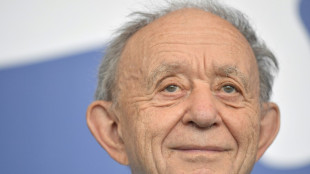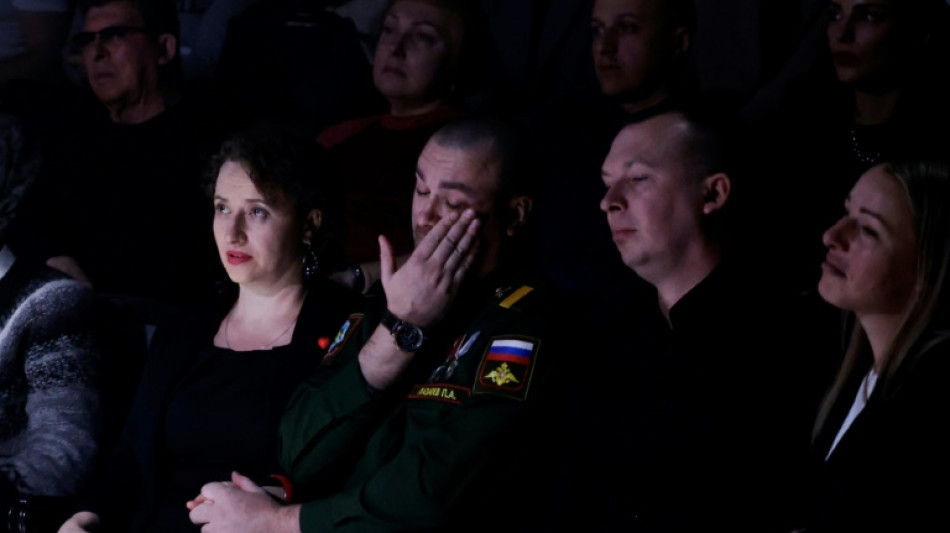
-
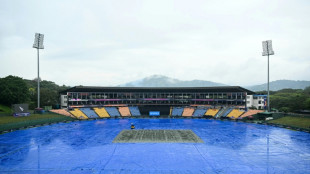 Australia, Ireland out of T20 World Cup as Zimbabwe qualify after washout
Australia, Ireland out of T20 World Cup as Zimbabwe qualify after washout
-
Greece experts to examine Nazi atrocity photos find

-
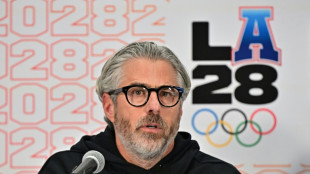 Los Angeles mayor calls for 2028 Olympics chairman to step down over Epstein files
Los Angeles mayor calls for 2028 Olympics chairman to step down over Epstein files
-
Evenepoel takes UAE Tour lead with time-trial win

-
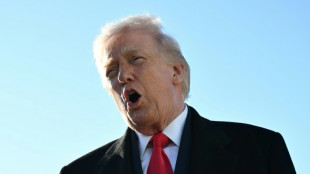 Oil prices rise as Trump ramps up Iran threats
Oil prices rise as Trump ramps up Iran threats
-
EU investigates Shein over sale of childlike sex dolls
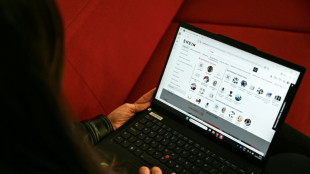
-
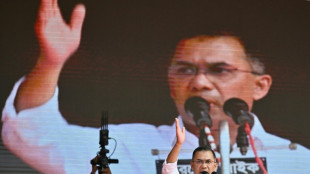 Bangladesh's new PM, political heir Tarique Rahman
Bangladesh's new PM, political heir Tarique Rahman
-
Rain threatens to knock Australia out of T20 World Cup
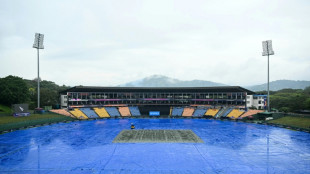
-
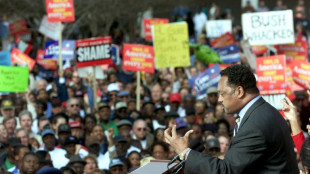 US civil rights leader Jesse Jackson dies at 84: family
US civil rights leader Jesse Jackson dies at 84: family
-
Trump's new envoy arrives in South Africa with relations frayed
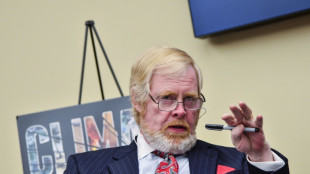
-
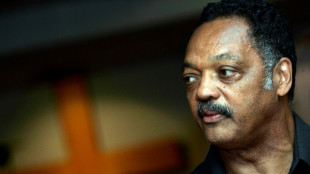 Jesse Jackson: civil rights lion sought 'common ground'
Jesse Jackson: civil rights lion sought 'common ground'
-
Iran, United States hold new talks in Geneva
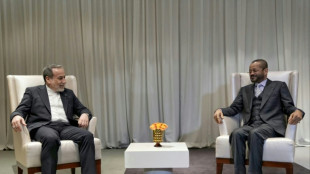
-
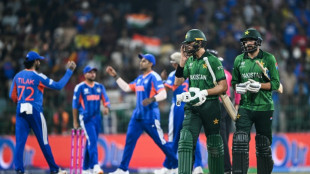 Tariq confident Pakistan can bounce back after India drubbing
Tariq confident Pakistan can bounce back after India drubbing
-
Being back in the USA 'feels amazing', says Vonn
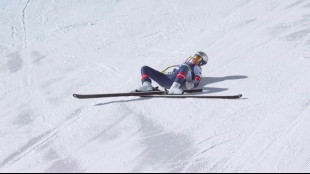
-
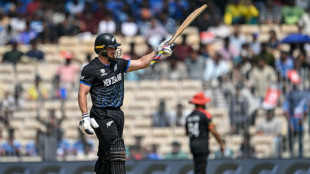 New Zealand cruise into Super Eights at T20 World Cup
New Zealand cruise into Super Eights at T20 World Cup
-
Moscow, Kyiv meet for US-brokered talks after fresh attacks
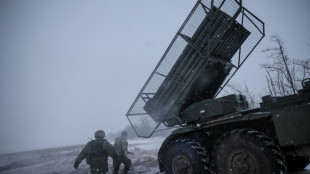
-
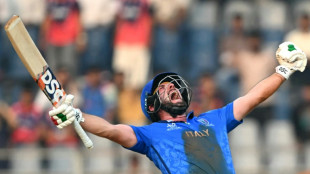 Exhilarating Italy aim to sign off with giant-killing at T20 World Cup
Exhilarating Italy aim to sign off with giant-killing at T20 World Cup
-
Samra hits 110 for Canada against New Zealand at T20 World Cup
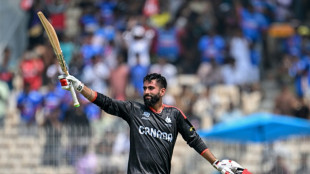
-
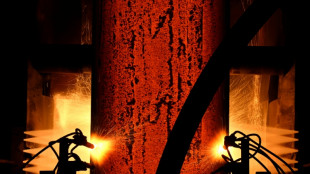 'Made in Europe' or 'Made with Europe'? Buy European push splits bloc
'Made in Europe' or 'Made with Europe'? Buy European push splits bloc
-
Slovakia revamps bunkers with Ukraine war uncomfortably close
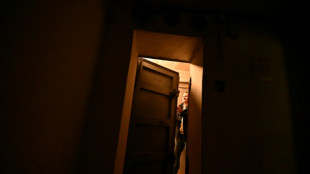
-
 Sydney man jailed for mailing reptiles in popcorn bags
Sydney man jailed for mailing reptiles in popcorn bags
-
'Like a Virgin' songwriter Billy Steinberg dies at 75
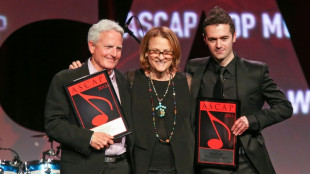
-
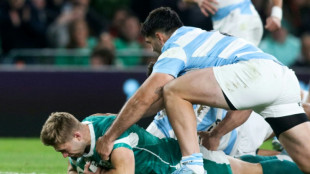 Who fills Sexton vacuum? Irish fly-half debate no closer to resolution
Who fills Sexton vacuum? Irish fly-half debate no closer to resolution
-
Japan hails 'new chapter' with first Olympic pairs skating gold
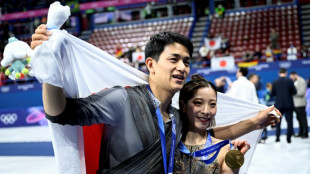
-
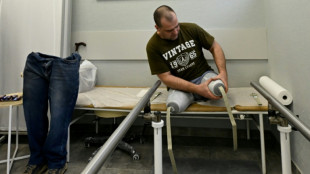 Russian prosthetics workshops fill up with wounded soldiers
Russian prosthetics workshops fill up with wounded soldiers
-
'Not just props that eat': Extras seek recognition at their own 'Oscars'
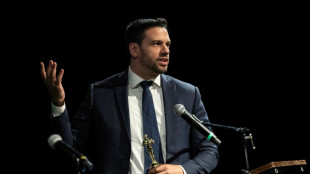
-
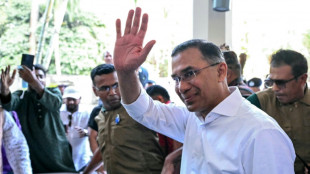 Bangladesh PM-to-be Tarique Rahman and lawmakers sworn into parliament
Bangladesh PM-to-be Tarique Rahman and lawmakers sworn into parliament
-
At least 14 killed in spate of attacks in northwest Pakistan
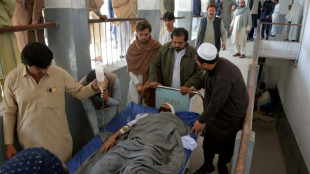
-
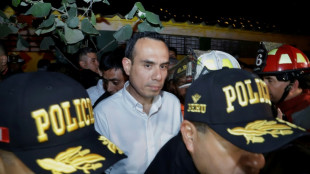 Peru Congress to debate impeachment of interim president
Peru Congress to debate impeachment of interim president
-
Bleak future for West Bank pupils as budget cuts bite
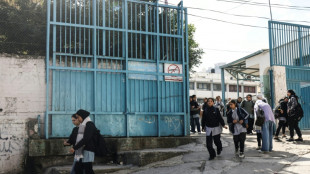
-
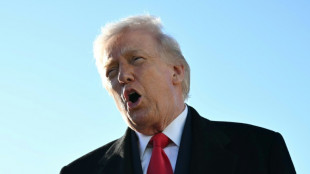 Oil in spotlight as Trump's Iran warning rattles sleepy markets
Oil in spotlight as Trump's Iran warning rattles sleepy markets
-
Why are more under-50s getting colorectal cancer? 'We don't know'
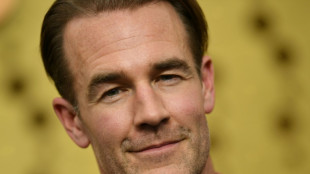
-
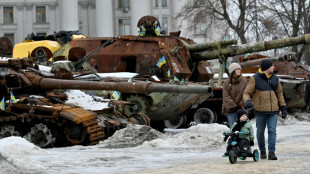 Moscow, Kyiv set for Geneva peace talks amid Russian attacks
Moscow, Kyiv set for Geneva peace talks amid Russian attacks
-
Iran, United States set for new talks in Geneva
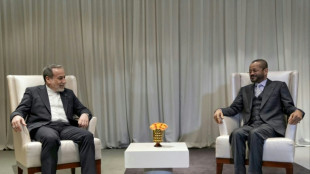
-
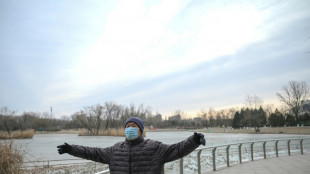 China has slashed air pollution, but the 'war' isn't over
China has slashed air pollution, but the 'war' isn't over
-
India's tougher AI social media rules spark censorship fears

-
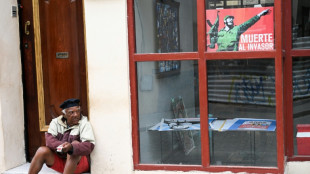 Doctors, tourism, tobacco: Cuba buckling under US pressure
Doctors, tourism, tobacco: Cuba buckling under US pressure
-
Indonesia capital faces 'filthy' trash crisis
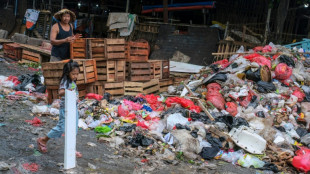
-
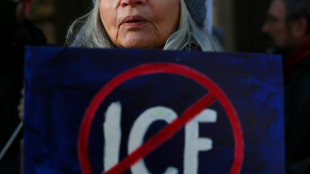 France grants safe haven to anti-Kremlin couple detained by ICE
France grants safe haven to anti-Kremlin couple detained by ICE
-
Wolfden Highlights Potential Precious Metal Upside at Canoe Landing

-
 QNX to Showcase the Software Building Blocks Powering Next-Generation Robotics and Physical AI at Embedded World 2026
QNX to Showcase the Software Building Blocks Powering Next-Generation Robotics and Physical AI at Embedded World 2026
-
ToolsGroup Partners with Levapan to Accelerate Digital Transformation in Supply Chain Planning for Consumer Goods, Bakery Raw Materials, and Bio-Ingredients

-
 Black Book's 2026 State of Behavioral Health IT Report Ranks Netsmart #1
Black Book's 2026 State of Behavioral Health IT Report Ranks Netsmart #1
-
Capstone Positioned to Lead Multi-Year Remodeling Cycle as Demand Improves
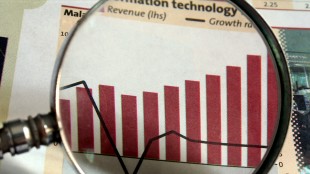
-
 Este Favor Receives Award at the 2026 International Istanbul Awards
Este Favor Receives Award at the 2026 International Istanbul Awards
-
Fabricate Launches AI-Powered Full-Stack App Builder

-
 SideChannel Reports FY 2026 First Quarter Results
SideChannel Reports FY 2026 First Quarter Results
-
Greene Concepts Announces Be Water Coming Soon to Amazon

-
 ESGold Appoints Galen Carson to Advisory Board
ESGold Appoints Galen Carson to Advisory Board
-
Wellows Launches AI Search Visibility Platform for Agencies and Startups


Russian playwright tells story of wounded soldiers
Sat in a Moscow theatre, Pavel wiped tears as he watched actors perform a dramatised version of his life: from his childhood in the south of Russia, near Ukraine, to his mobilisation into the Russian army and amputation after combat.
A few audience members smiled, some cried, most watched in silence.
Since Moscow launched its offensive against Ukraine three years ago, hundreds of thousands of Ukrainian and Russian soldiers have been killed and wounded.
But in Russia, showing and talking about the wounded is largely taboo -- both among supporters of the offensive and its critics.
"Radio-Pasha", a play written by former journalist Irina Bugrysheva, aims to change this.
It is based on her own experience as a masseuse treating battle wounded.
She said society was not accustomed to seeing wounded soldiers portrayed in the media.
"When I went to volunteer at the hospital in the fall of 2022, I started writing notes," Bugrysheva told AFP.
"I realised that what I was seeing was some other life that we are not told about, that we don't see on TV, that we don't hear on the radio."
- 'I don't take sides' -
Bugrysheva said she gave up journalism and social media at the start of the offensive on February 24, 2022 and trained to become a masseuse.
"I opened my Facebook and just closed it, because people -- who were close before -- were saying I was the one bombing Kyiv," she said.
Months later, she was volunteering at a hospital where wounded soldiers returning from Ukraine were being treated.
After her visits to the hospital, Bugrysheva took up writing again.
She compiled her experiences in a book titled "I touch the war with my hands", which will be published soon.
"I don't take sides. My focus is on the human soul alone," she said.
Bugrysheva came up with the title Radio-Pasha while watching soldier Pavel "Pasha" Lazarev talking non-stop on the phone at the hospital where he was being treated.
Her story caught the attention of Lyudmila Manonina-Petrovich, director of the small Kovcheg theatre in Saint Petersburg, who staged "Radio-Pasha".
Manonina-Petrovich said she wanted the audience to understand the plight of the soldiers returning from Ukraine.
"So that society would be ready for this return -- ready to accept it," she said.
- 'Very touching' -
That evening, on the smallest stage of the Vakhtangov Theatre in Moscow, there were only around a hundred spectators in attendance.
Among them was Alexei, a 27-year-old soldier who had returned from Ukraine.
He struggled to hold back tears.
"It was very touching. Lots of memories come flooding back. And you realise that nothing was in vain," he said.
Throughout the performance, the real Pavel Lazarev squeezed Bugrysheva's hand. A factory worker, he remembers the day he was mobilised.
"I had already done my military service in Chechnya. I knew I would be useful," he told AFP. "They called me up, and I went."
He said he took part in the fighting for the eastern Ukrainian city of Marinka, which Moscow took full control of at the end of 2023.
Wounded in combat, his leg had to be amputated.
"Through these performances, every fighter sees himself, endures this pain, and it becomes easier for him," he said.
But few venues are willing to host the plays and the organisers are having a hard time financing their project.
Private organisations and the authorities have shown no interest so far.
For the past three years, the Russian army has sought to portray the image of healthy soldiers on the road to victory.
The play is mainly performed in small cultural centres in the suburbs of Saint Petersburg.
Critics of the offensive do not condone the play either, as they reject compassion towards those fighting for Moscow.
Konstantin Zelensky, the actor who plays Lazarev, said he was upset that the theatrical community was indifferent to the play.
"I didn't have to make up anything. My brother was mobilised, he's in his third year of the special military operation," the actor said.
"Our so-called theatrical bohemians don't hide their lack of support for the special military operation. So we just get together and do it ourselves," he said.
P.Silva--AMWN

